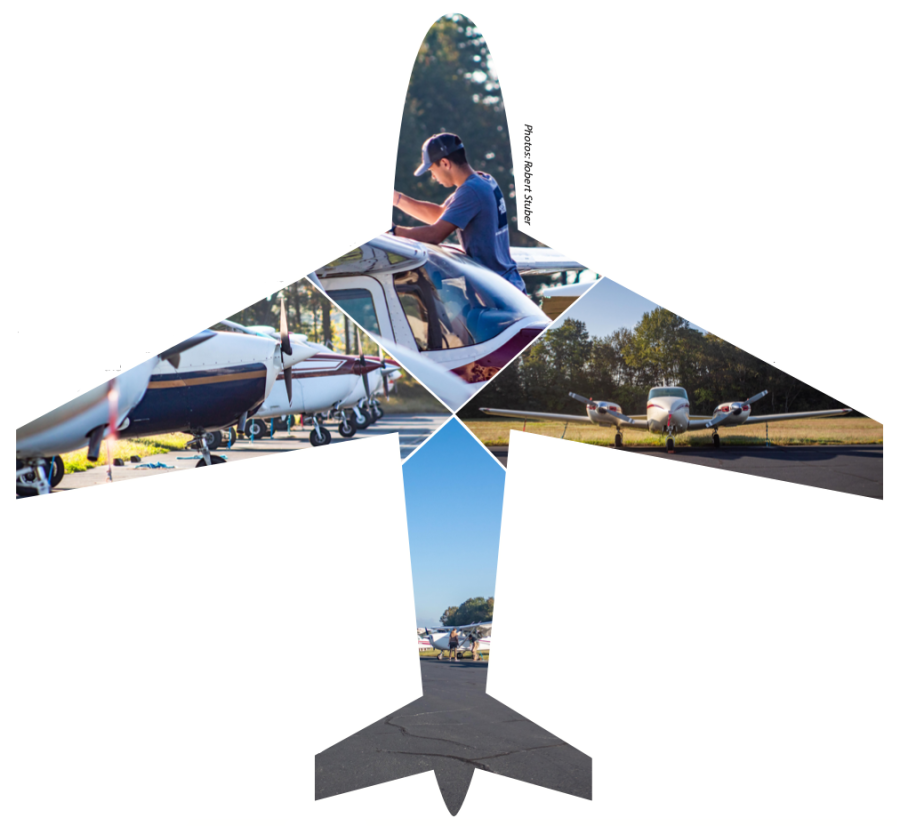Unlike most programs at BJU, the aviation minor’s instruction happens entirely off-campus. BJU offers this minor through its partnership with USAeroFlight, a flight school based in Greenville.
The students receive credit for the minor through BJU, but the classes take place at the Greenville Downtown Airport.
Dan Smith, BJU’s registrar, said the University has an articulation agreement with USAeroFlight, meaning the students pay USAeroFlight directly to oversee their aviation instruction. The students then bring the report the flight school gives them to Smith, who adds the information to the students’ academic records at BJU.
While the USAeroFlight flight school is open to anyone, the articulation agreement allows students to get college credit from BJU as well as a flight certificate from USAeroFlight. “The aviation minor takes a student all the way through his commercial certificate so that he can earn money and get paid to fly,” said Mike Gonzales, flight school manager for USAeroFlight.
He said USAeroFlight was founded by former BJU aviation faculty, who started the flight school after BJU ended its in-house aviation program. Gonzales served as a BJU flight instructor and eventually as an adviser to the aviation students at BJU for 12 years before the University program was ended.
“We teach at the Greenville Downtown Airport, in fact, [at] the old Bob Jones University facilities,” he said. “We’re still in them, and we still lease them.”
To fly for most airline companies or cargo companies, students need a four-year degree, according to Josiah Sturgis, a sophomore business major with an
aviation minor.
Gonzales agrees, recommending that aviation students get a four-year degree to help them in their future career path.
Although the major may not be what they want to do full-time, Gonzales said it is good for them to have a major they can fall back on, as well as one that will shape their degree. For example, Sturgis’ business degree helps to shape his aviation minor, as business can be applied to a broad range of careers if he decides he doesn’t want to go into aviation.
Sturgis said he came to BJU partially because of its aviation minor. “It works out because then I can get my four-year degree at BJU and my initial aviation training while doing college,” he said.
Flight training consists of two different components, according to Sturgis. One is ground school, where students do the assigned training and take a written test once they’re done with the training. The other aspect is more practical hands-on training involving a plane and a flight instructor.
Students interested in taking the aviation minor can go to Student Central where they’ll find the link to the minor. The link takes them to the information about how they can sign up for the aviation minor through USAeroFlight and puts them in contact with Gonzales, who explains how the minor and flight programs associated with it work.
He then helps them register for classes. Ground school classes are on Mondays, Wednesdays and Fridays, and Gonzales helps students choose a time for the flight training portion, which is worked into students’ schedules, not set at a certain time or day for all students.


























































